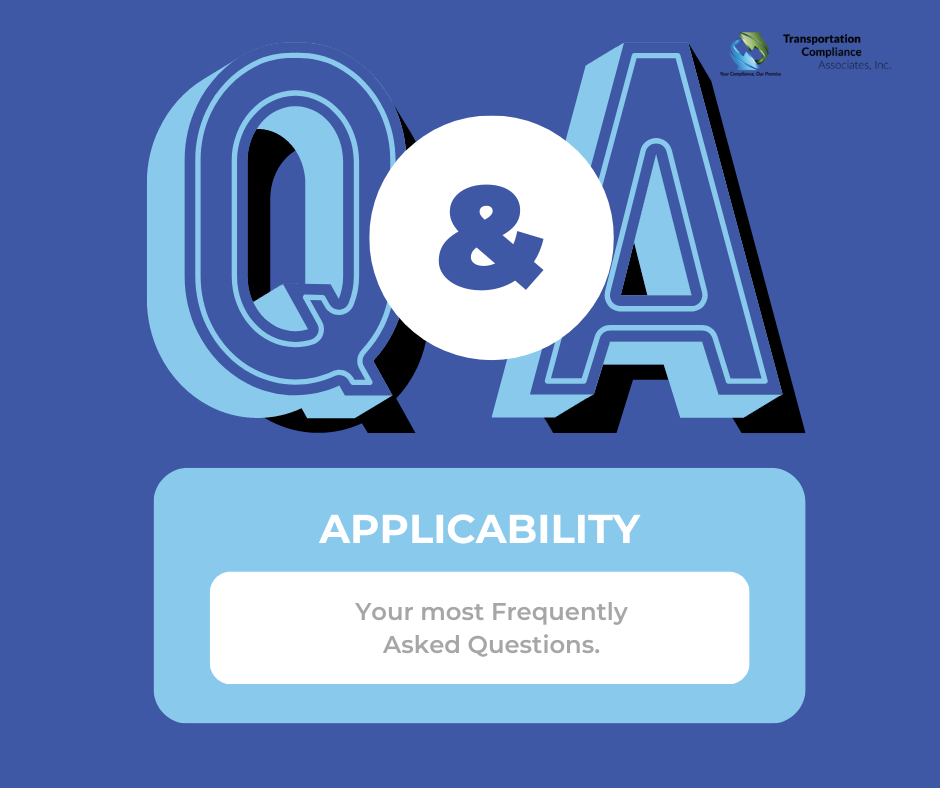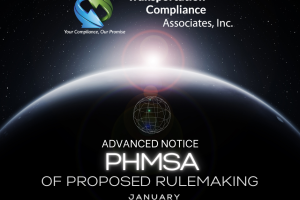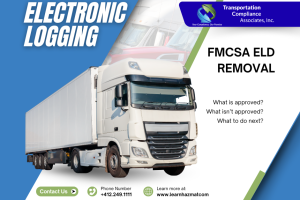Applicability: PHMSA Answers Your FAQ’s

Webinar Round Up
You may or may not recall back in March 2022, The Department of Transportation’s (DOT) Pipeline and Hazardous Materials Safety Administration (PHMSA) announced it would be answering questions and converting historical Letters of Interpretation regarding applicability of the Hazardous Materials Regulations (HMR) via live webinar. If you missed that original Notice, you may have caught the second one in June 2022, which extended the comment period to July 2022. In this final Notice PHMSA is publishing its first set of responses along with announcing its topics for upcoming FAQs.
It should also be noted these are not considered legal requirements, but more so meant to help understand the often confusing regulations. For the full Notice published in the Federal Register click HERE NOW! You can also view the recorded webinar on YouTube as well.
For your viewing pleasure, we have also duplicated the questions and answers from the original PHMSA notice:
“ (1) Question: Is a federal, state, or local government agency subject to the HMR?
Answer: Pursuant to § 171.1(d)(5), a federal, state, or local government that transports hazardous materials for non-commercial governmental purposes using its own personnel is not engaged in transportation in commerce and, therefore, is not subject to the HMR. As specified in § 171.1, the HMR governs the safe transportation of hazardous materials in intrastate, interstate, and foreign commerce. The term “in commerce” does not include a federal, state, or local government that transports hazardous materials for its own use, using its own personnel, and motor vehicles, aircraft, or vessel under its control.
(2) Question: Are state universities subject to the HMR when transporting hazardous materials?
Answer: A state agency—such as a state university—that transports hazardous materials for its own non-commercial use, using its own personnel and vehicles, is not engaged in transportation in commerce and, therefore, is not subject to the HMR.
(3) Question: Is a hazardous material transported on private roads subject to the HMR?
Answer: Section 171.1(d)(4) states that the transportation of hazardous materials entirely on private roads with restricted public access is not subject to the HMR. Please see Q4.
(4) Question: Is a hazardous material subject to the HMR that only crosses a road with public access?
Answer: The transportation of hazardous materials that takes place by motor vehicle and within a contiguous plant boundary is not subject to the HMR. However, intra-plant transport that utilizes or crosses a public road is subject to the HMR during that portion of the transportation unless access to the public road is restricted by gates, traffic signals, guard stations, or similar controls, in accordance with § 171.1(d)(4). Please see Q3.
(5) Question: Are hazardous materials installed or used in or on a motor vehicle (e.g., gasoline in the motor vehicle’s fuel tank) subject to the HMR?
Answer: Hazardous materials that are installed or used in or on a motor vehicle such as the motor vehicle’s fuel, suspension, or safety systems are not subject to the HMR. Fuel systems and safety equipment may be subject to the Federal Motor Carrier Safety Regulations (FMCSR) and National Highway Traffic Safety Administration (NHTSA) requirements.
(6) Question: Is the filling of a package with a hazardous material subject to the HMR if it is not being offered for transportation in commerce?
Answer: The answer is no. However, if there is a chance of future transportation in commerce, the stakeholder should consider placing that hazardous material in packagings suitable for transportation of that material in commerce to minimize safety risks associated with its re-packaging.
(7) Question: Are stationary (storage) tanks containing a hazardous material such as propane subject to the HMR?
Answer: The answer is no, unless the tank is transported in commerce containing a hazardous material or its residue or if it is represented and maintained as a DOT packaging usable for hazmat transportation.
(8) Question: Are hazardous materials being transported for personal use subject to the HMR? For example, are pesticides that are transported from a store by individuals to treat their garden subject to the HMR?
Answer: The answer is no. Under part 171, the phrase “in commerce” means in furtherance of a commercial enterprise. Transportation in a private motor vehicle for personal use is not considered in furtherance of a commercial enterprise even when transported in a leased or rented vehicle.
(9) Question: Are privately-owned Department of Transportation (DOT) cylinders used for SCUBA diving subject to the HMR even when not transported in commerce?
Answer: A SCUBA tank that is represented as conforming to HMR requirements— i.e., marked with a DOT specification marking—must be maintained by the owner of said SCUBA tank in accordance with the applicable specification requirements whether or not it is in transportation in commerce.
(10) Question: Are government-owned hazardous materials transported for government purposes by contractor personnel subject to the HMR?
Answer: The answer is yes. As provided in § 171.1(d)(5), the HMR do not apply to transportation of a hazardous material in a motor vehicle, aircraft, or vessel operated by a federal, state, or local government employee solely for noncommercial federal, state, or local government purposes. However, contractor personnel are not considered government employees and the provisions of the HMR apply.
(11) Question: Are gasoline cans transported by a landscaping company by motor vehicle subject to the HMR?
Answer: Commercial businesses—such as landscaping, swimming pool services, or construction companies—transporting hazardous materials are considered “in commerce” and subject to the HMR. However, when used in support of a business, the HMR provides an exception in § 173.6 for the transport of “materials of trade.”
(12) Question: Are household hazardous wastes transported by a private person to a county drop-off facility subject to the HMR?
Answer: The answer is no, provided the household hazardous wastes are the individual’s personal property and he or she is not engaged in a commercial activity, such as a landscaping company or carpentry service.”
If you’re still confused and need help, fear not! Transportation Compliance Associates, Inc. is here to help answer all your hazardous materials related questions. You can give us a call for a 100% FREE Consultation or visit us at www.learnhazmat.com and one of our dedicated team members will help you decide what industry leading training or compliance solution can help you achieve all your safety and compliance goals.
And don’t forget to follow us on Facebook and LinkedIn or sign up for our newsletter to stay up to date with industry news, reg. changes, and exclusive offers!




